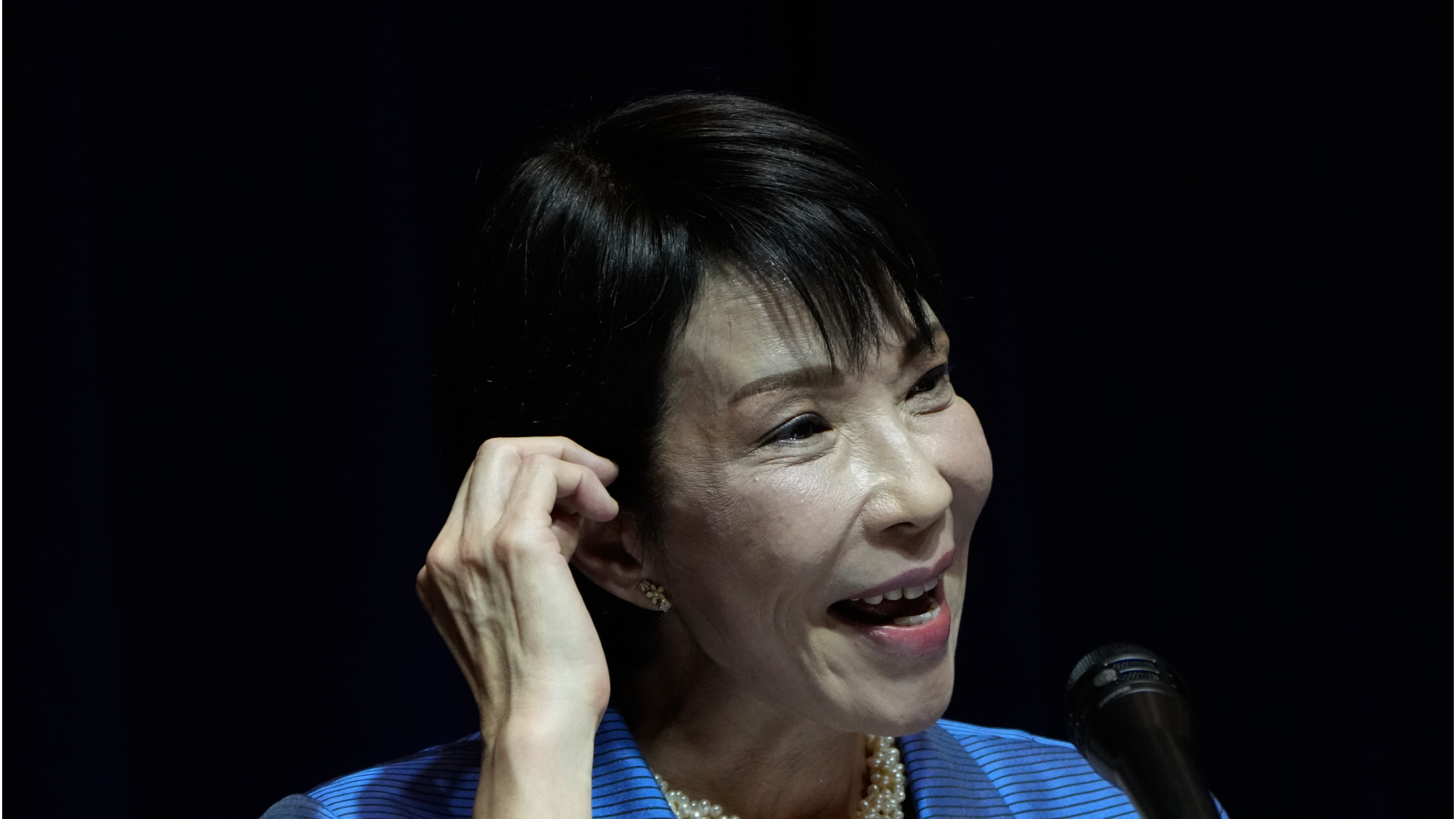
Japanese Prime Minister Sanae Takaichi said the nation is still in the process of achieving stable inflation accompanied by wage increases, in a sign that she wants the Bank of Japan (BOJ) to proceed cautiously with its policy deliberations.
“I recognize that we are still halfway to attaining stable and sustainable inflation with wage increases,” Takaichi said in parliament Tuesday afternoon. “I expect the BOJ to continue to take appropriate monetary policy” toward achieving its price target.
The yen fluctuated after her remark. Earlier in the day the yen touched an eight-month low of 154.48 to the dollar before reversing course after Minister of Finance Satsuki Katayama reiterated a warning about one-sided currency moves.
READ MORE: Japan’s Takaichi orders economic package to tackle inflation
Takaichi was speaking after pledging to put together the nation’s new growth strategy by next summer, while vowing to boost tax revenues without increasing taxation rates.
“Under the thinking of responsible, proactive fiscal policy, we will strategically implement fiscal stimulus,” Takaichi said earlier in the day. “We aim to strengthen Japan’s supply structure, increase incomes, improve consumer sentiment, boost corporate profits and increase tax revenues without raising taxation rates.”
Takaichi’s remarks Tuesday had echoes of her mentor, former premier Shinzo Abe, who rolled out an economic strategy known as Abenomics to help reflate the economy. Achieving a virtuous cycle would enable the public to tangibly feel the fruits of economic recovery, she said.
After becoming Japan’s first female prime minister last month, Takaichi faces the question of how to shore up the economy while addressing ongoing inflation that’s fed into voter dissatisfaction. So far she’s enjoyed high support rates in public opinion polls and handled a slew of foreign policy events in her first two weeks in power, but inflation has played a major role in bringing down her two predecessors’ administrations.
Join us Nov 5 from 4 pm Japan time for Bloomberg’s Global Credit Forum Tokyo featuring Atsushi Mimura, Vice Finance Minister for International Affairs. Set an alert to watch on the terminal, or watch here online. Follow the highlights & analysis in our live blog here.
Japan’s new leader also ordered the consideration of multi-year budget measures — something that existed during the Abenomics years. At the time the government aimed to spur growth through the three approaches of aggressive monetary stimulus, fiscal spending, and structural reform, although efforts for the last part in particular fell short of expectations.
Takaichi credited Abenomics for creating non-deflationary economic conditions, expanding employment and boosting corporate earnings. She also admitted that the strategy saw only limited success on its growth strategy to entice private investment.
Takaichi’s remarks related to the central bank will likely reinforce speculation that the premier, known as an advocate of monetary easing, wants the BOJ to move carefully. The bank is widely expected to hike in December or January after it kept its benchmark rate unchanged at 0.5 percent last week.
READ MORE: Average rice price in Japan drops for 1st time in 3 weeks
For the growth strategy, Takaichi said she aims to make a roadmap to enhance private-public investments. She ordered Minoru Kiuchi, her growth strategy minister, to decide on pillars to be included in the upcoming economic package, that’s set to be backed by an extra budget by the end of the year.
Takaichi refrained from commenting on the size of the extra budget.
Among the 12 external experts that are part of the panel were Goushi Kataoka, a former Bank of Japan board member known for his reflationist stance, and Credit Agricole chief economist Takuji Aida, who is an advocate of expansionary policy. Five of the 12 selected external members are women.


